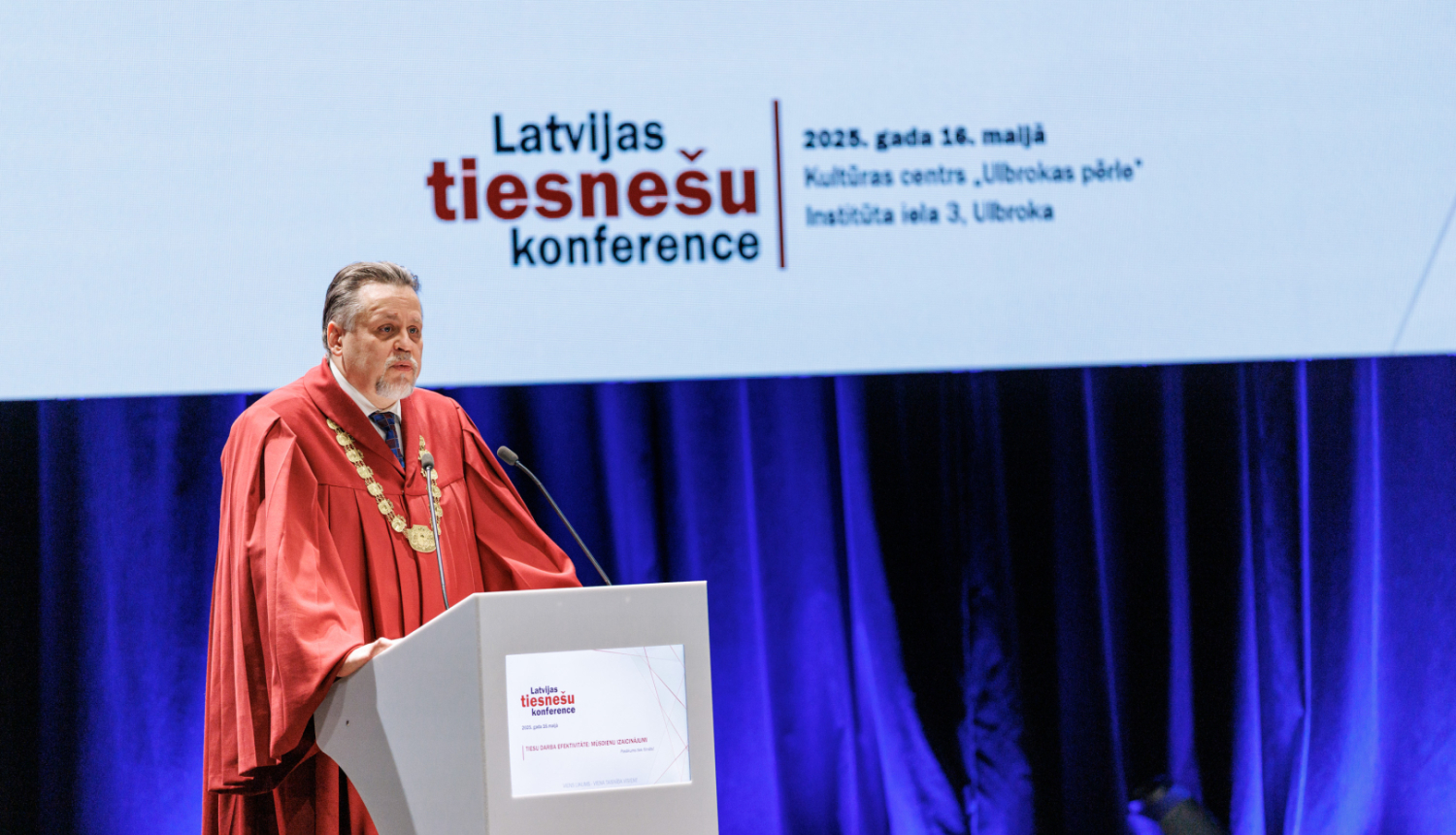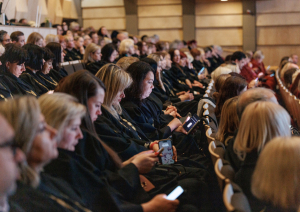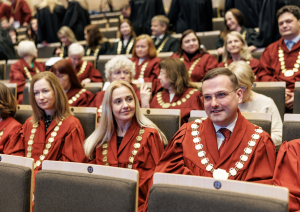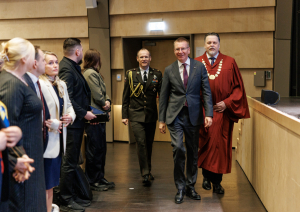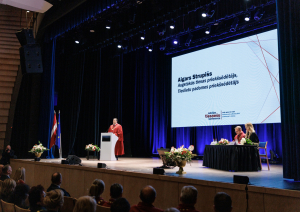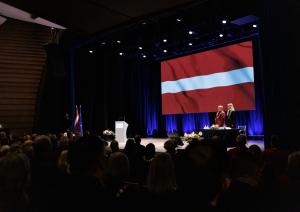On Friday, 16 May, the annual Latvian Judges Conference took place, bringing together judges from all over the country to discuss how to improve the efficiency of court work and to tackle current challenges.
Opening the conference, President of Latvia Edgars Rinkēvičs emphasised that the aim of the court is not the court itself, but the restoration of justice based on the common understanding of the law in society. He pointed out that the task of a judge is to listen to the parties' views on justice, maintaining impartiality and fairness, and explaining the decisions taken to the public. The President of Latvia stressed the need to strengthen access to justice and legal understanding in society, as justice is closely linked to public security and trust in the state.
In her address to conference participants, Minister of Justice Inese Lībiņa-Egnere stressed the importance of public trust in the judiciary and the need to strengthen democracy, "Today, public trust in the judicial system is critically important – it is the cornerstone of a democratic state. We cannot allow our system of government and the resilience of society to be undermined by ostensibly democratic methods. Therefore, in order to protect our country and its citizens, the Constitution provides for the possibility to take special measures to safeguard democracy, including criminalising offences that threaten national security and countering disinformation through administrative decisions. I believe that justice and the rule of law will prevail, but only with the participation of all of us. Each one of us has a duty to protect Latvia and to do the best we can with the resources at our disposal."
Assessing the existing efficiency of the judicial system, Aigars Strupišs, Chair of the Judicial Council and President of the Supreme Court, said that "there are still too many untapped reserves of efficiency and quality in the judicial system, the targeted use of which could make Latvian courts significantly more efficient, of higher quality and more understandable from the public point of view." At the same time, he emphasized that judges are independent in the administration of justice, but not in matters of the organisation and efficiency of court work. Therefore, judges should be ready to flexibly adapt to changes and solutions aimed at improving their work.
The first part of the conference was devoted to an assessment of the challenges to the efficiency of the judicial system. Juris Siliņš, Member of the Judicial Council, Head of the Working Group for Court Efficiency and President of the Zemgale Regional Court, provided information on the current state of the judicial system and opportunities to optimise its resources. He stressed that the judiciary is accountable to society for the rational and efficient use of resources. An efficient judicial system is characterised by accessibility, timeliness, work that is comprehensible to the public and the ability to provide services that meet the needs of citizens. Judges responding to a survey conducted during the conference pointed out that the court work efficiency is also shaped by the knowledge, professionalism and integrity of the judges themselves.
Professor Jānis Priede, Dean of the Faculty of Economics and Social Sciences of the University of Latvia, discussed the importance of the judicial system for the country's economic development, stressing that one of the most important factors in promoting efficiency is the development of new technologies. Judges themselves pointed out that the main challenges related to the introduction of modern technologies in the judicial system are the conservatism of the system, the preservation of justice and humanity, as well as the necessary knowledge and skills in the use of these technologies.
In her address to conference participants, Diāna Makarova, Chair of the Judicial Ethics Commission, Senator of the Supreme Court, focused on how the efficiency of judges' work impacts the observance of professional ethics. She also highlighted current issues of judicial security, procedural guarantees and ethical principles to be observed when using social networks.
The second part of the conference was devoted to the possibilities of enhancing the individual efficiency of judges, with a particular focus on new technologies and personal development. Normunds Grūzītis, Head of the Artificial Intelligence Laboratory at the Institute of Mathematics and Computer Science of the University of Latvia, gave an insight into the possibilities offered by artificial intelligence to support the work of judges. Most of the judges indicated that they use AI solutions mainly at the level of everyday users.
Laila Jurcēna, Director of the Academy of Justice, presented the work of the Academy and its role in improving the professionalism and efficiency of judges. She emphasised that the legislator, in cooperation with the judiciary, has established a system that allows a judge appointed for life to administer justice impartially and fairly, while at the same time to perform the duties of his or her office and to undertake continuous professional education. Among other things, judges responding to the survey indicated that the optimal number of training events per year is between five and six.
In her speech, psychologist Elīna Zelčāne addressed the question of how judges can maintain their efficiency while avoiding burnout. She invited judges to take a closer look at their daily work routine and conduct a time management audit to identify the causes of overwork and find ways to improve the balance between professional and personal needs. Judges acknowledged that one of the biggest challenges in their work is to complete all the scheduled tasks within the working day.
At the end of the conference, Aigars Strupišs emphasised that the Judicial Council would summarise the proposals made at the conference and would continue to seek solutions to improve the efficiency and organisation of court work in the future.
The presentations and a video recording of the Latvian Judges Conference are available on the website of the Judicial Council.
Additional information:
The Latvian Judges Conference is a self-governing body of judges convened by the Judicial Council at least once a year. It is attended by judges of all levels of courts – district (city) courts, regional courts and the Supreme Court.
Currently, there are 512 judges in Latvia working in district (city) courts, regional courts and the Supreme Court. 305 judges attended this year's conference in person.



